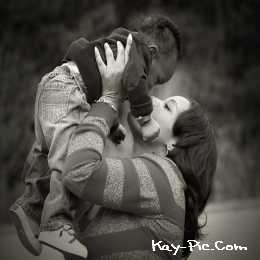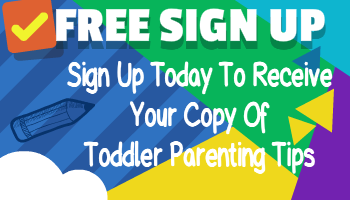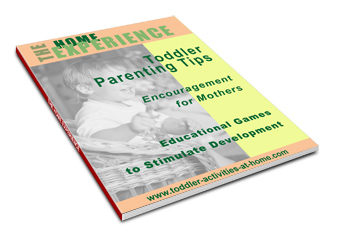ToddlerLingo
Using Toddler Language To Tackle Behavior Problems
The Toddler language you use, and the way you talk to your little one make a big difference to tackling behaviour problems in toddlers, and boosting their self-esteem.
This is more than just trying not to shout. Follow the strategies below and watch how your toddler's behaviour improves...
Small language tricks like these will make a surprising difference to
how you prevent and deal with behaviour problems in toddlers.
Give Clear Toddler Language Instructions
If instructions are too vague or negative, it's easy for your toddler to misunderstand you:
- "Stop doing that! It's Luke's" - Doing what?
- "Don't pick that car up. We can't take it home" - Daddy said 'pick the car up, take home' - great!
Children of this age are beginners and you should simplify what you say so they understand.
This is how: tell your child specifically what you want her to do, and show her as well if possible.
For example:
- "Put the paper in the bin please" (take her to the bin and point inside it)
- "Give the car to Luke please" (If there is no reaction, give the car to Luke yourself)
- "Blow bubbles" easy one because of the instant response.
Being
over-clear avoids misunderstandings where you think your toddler is
being naughty, but in fact she doesn't actually understand what you want
her to do. Keep toddler language simple and clear.
Always Praise Your Toddler
Do you tell your child how well he has done something often enough?
Praise for not running across the road or using the potty for the first time is good.
Praise for doing what is expected of him is even better.
Imagine it's your first day at a new job. You're not sure what is expected of you but you really want to do well and impress the boss.
Wouldn't you be happier getting constant positive feedback?
This
is what life is like for your toddler. Prevent behaviour problems by
praising him for eating his breakfast, coming when you ask and listening
to a story - even if he always does this anyway.
Be specific so he knows exactly what he has done right: "Good boy for eating your cornflakes. Well done!"
Try To Avoid The "NO" Word
NO is one of the toddler's favourite and most infuriating words.
If you can restrict how often you say it, so will they - hopefully!
Swap these No's for more positive instructions:
- "No more pudding" - Instead: "Pudding is finished now"
- "No walking on the road!" - Instead: "Let's walk on the pavement"
- "No eating food off the floor" - Instead: "We eat on the table, don't we?"
Toddler Activity Pages
Home l Printable coloring pages l Toddler Development Guidelines l Toddler Fine Motor Activities l Toddler Gross Motor Activities l Toddler Midline Activities l Toddler Sensory Activities l Preschool Math Activities l Preschool Alphabet Activities l Preschool Cooking Activities l Preschool Science Activities l
To Help Busy Mums and Dads Here Are Some Related Shopping Items
When you purchase from this link, you are actually purchasing from Amazon.com, and you can have peace of mind that your order will be processed by Amazon’s secure order server.












New! Comments
Have your say about what you just read! Leave me a comment in the box below.